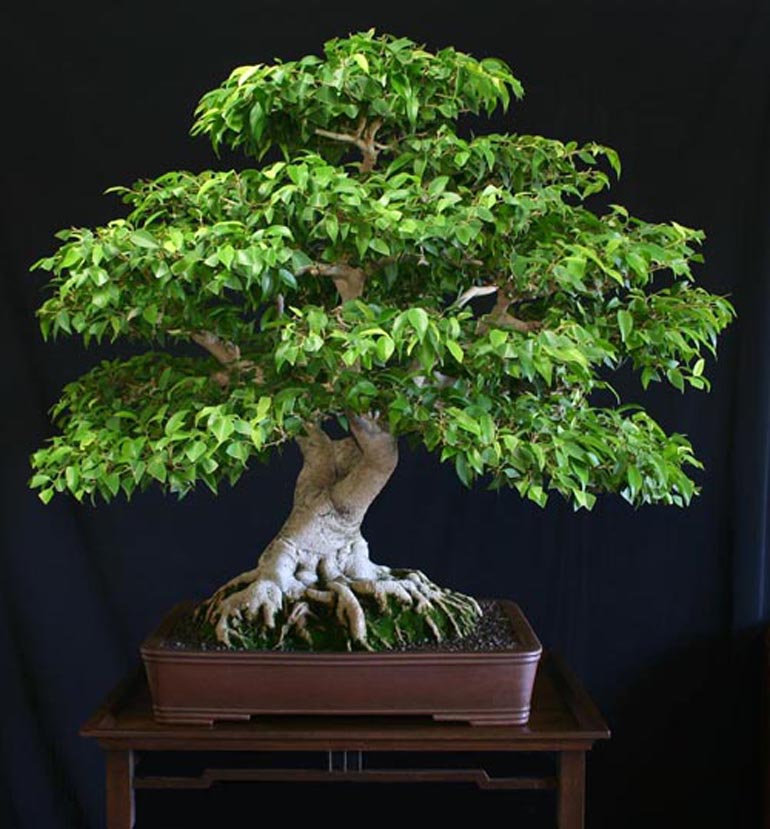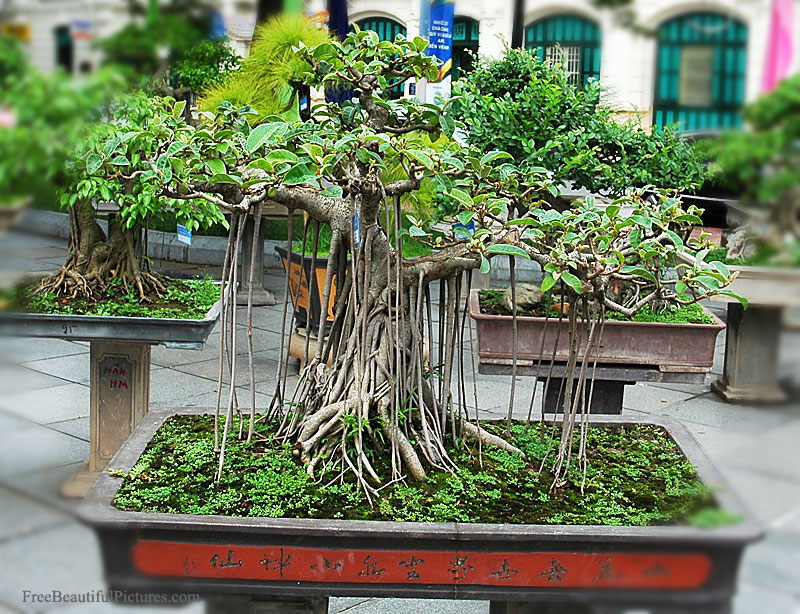
Ficus, the Exotic Bonsai Bonsai Bark
Ficus Benjamina, also known as the weeping fig, is a popular tree for bonsai. It is easy to care for and has a beautiful weeping form. The tree is native to India and Southeast Asia and is a member of the Moraceae family. Ficus Benjamina can grow to be 30 to 50 feet tall in its natural habitat.
:max_bytes(150000):strip_icc()/Bonsai-Ficus-Benjamina_GettyImages-860883758-20d2dcbeb0084f2187a0a5405bbf624b.jpg)
16 Common Bonsai Tree Species to Grow
Ficus Benjamina bonsai are popular indoor house plants and can be grown as stunning indoor trees. They prefer a moist, well-draining soil and should be watered just before it dries out to avoid root rot. Ficus Benjamina bonsai can tolerate full sun or shade, but more light promotes better growth.

Pin by José M. on Bonsais Garden bonsai tree, Bonsai diy, Bonsai tree
What is Ficus Benjamina? According to Britannica.com, the Ficus genus includes a massive 900 unique species, most of which grow naturally in tropical regions, primarily those in East Asia. Ficus are evergreen trees, meaning that they do not lose their foliage seasoanlly.

Ficus benjamina, Ficus, Bonsai ficus
Ficus Benjamina, or Weeping Fig, are extremely popular for bonsai due to the beautiful umbrella-like canopy that can be produced with the thin branches that typically cascade downward from the weight of the leaves. In the wild, the roots of this tree are known to break concrete surfaces, wreaking havoc on defenseless roads and sidewalks.

Weeping Fig bonsai, Ficus benjamina, which has been in training since
Ficus Benjamina, or Weeping Fig, are extremely popular for bonsai due to the beautiful umbrella-like canopy that can be produced with the thin branches that typically cascade downward from the weight of the leaves. In the wild, the roots of this tree are known to break concrete surfaces, wreaking havoc on defenseless roads and sidewalks.

Bonsai ficus, Bonsai tree, Bonsai tree care
Ficus benjamina, like most species of ficus, appreciates lots of bright, indirect sunlight. An east-facing window that gets bright morning light is the perfect spot for your Ficus benjamina. You can also place your tree a few feet away from a west- or south-facing window where the harsh afternoon sun won't shine directly on the leaves.

Bonsai Ficus Benjamina Plants Pinterest
The ficus is an indoor tree that does not endure frosty conditions. It can be kept outside in the summer as long as temperatures are above 60°F (15°C). It requires a lot of light, preferably full sunlight, so be sure not to place it in a shady location. The temperature should be kept relatively constant.

Ficus Benjamina Bonsai Care Guide Modern Design Bonsai baum, Ficus
Ficus benjamina is a flowering plant, belonging to the Moraceae family, which grows in abundance in the continents of Asia and Australia. It is commonly known as the 'Weeping fig', 'Benjamin fig', or simply Ficus. In its natural habitat, it can grow as tall as 30 meters. It consists of droopy branchlets and glossy oval leaves.

Ficus Benjamina from IKEA r/Bonsai
What is Ficus Benjamina? The Ficus genus contains over 900 distinct species, which grow naturally in tropical climates, primarily in East Asia. Ficus Benjamina Bonsai trees are evergreen, so they do not lose their leaves seasonally. Some Ficus species also yield the delectable figs found in supermarkets.

Ficus benjamina bonsai. Jade Bonsai, Bonsai Ficus, Indoor Bonsai Tree
The Ficus Benjamina bonsai is a hardy variety of bonsai that easily adapts to changing environments. This bonsai has broad leaves that grow from stems at the top of the plant, making it easy to keep pruned. The Ficus Benjamina is a dwarf variety of the species and is known as: Java Fig Benjamina Fig Dwarf Ficus Tree Weeping Fig

Ficus Bonsai
These are also Ficus species: Ficus carica 'Panachee' (a striped form of the common edible fig); Ficus macrophylla (a giant banyon-forming species); and on left, Ficus microcarpa, the species most commonly confused with Ficus benjamina (at least in southern California where it is also used commonly as a landscape plant) Weeping Figs are characterized by having ovoid, shiny green leaves that.

Bonsai My Chicago Botanic Garden
Ficus Bonsai Live Plant For Sale. $39.00. During the winter, do not water as much. If it is kept in a sunny location that is warm during the winter, then the Ficus plant will require more watering when compared to a cooler spot. Instagram @anshu.bonsai. Instagram @anshu.bonsai. Instagram @niponbonsai.

Ficus Midnight Bonsai Tree Exposed Roots Style (benjamina 'midnight')
Ficus Benjamina bonsai can drink a lot water while it is growing, but it should not be left to sit in water as this can cause root rot. You should water your tree just before it dries out. If you are using good soil your tree will always been in moist soil which is perfect for it. (For more info you can read - How To Water A Bonsai)

Ficus Benjamina Bonsai Pohon bonsai, Bonsai, Pohon
The Ficus benjamina makes an excellent bonsai subject because it has bold visual appeal and a natural appearance as if it were growing in the wild. In addition, the tree has an upright growth habit and produces beautiful leaves that vary in shape depending on the variety of Ficus you choose to grow. And the roots also strengthen with time.

BonsaiDojo Guide To the Ficus Benjamina Bonsai
September 7, 2022 by Yulios Ficus benjamina, also known as the weeping fig, is a popular choice for bonsai. It is an evergreen with a dense, upright growth habit and glossy green leaves. When bonsai-ed, the weeping fig can be a beautiful and unusual addition to your home or garden. Here are some tips on how to bonsai ficus benjamina.

Vintage Golden Retriever USA Slouchy Tee Ficus benjamina bonsai
Ficus benjamina (ficus benjamin or weeping fig) Ficus ginseng Ficus salicifolia (willow leaf fig) Ficus macrophylla (Moreton Bay fig) These varieties are all pretty common in the bonsai world, so you can find them just about anywhere bonsai trees are sold. How to Care for a Bonsai Ficus Tree